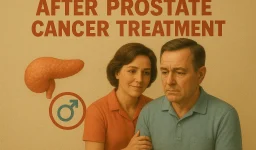Male health issues have for decades been neglected, due to the societal perceptions of masculinity. Men’s health problems are often constricted to erectile dysfunction, testicle cancer and prostate cancer. However, the fact is that men are at a higher risk of many health complications. This is credited to their unhealthy lifestyles and heavy smoking and drinking among other factors. In this article, we take a keen focus on the issue of male menopause.
What is male menopause?
Also known as andropause, male menopause is a phenomenon where men experience hormonal changes. It is characterized by the gradual drop of testosterone levels in a man’s body. Testosterone is a male hormone primarily produced in the testicles. It is responsible for libido and development of male physical characteristics such as increased muscle and bone mass.
Menopause often hits men between the ages of 40 to 60. Usually men hit their sexual peak in their 20’s, and after that testosterone levels drop gradually. At the age of 40, hormonal levels in most men will be about half of what they were during a man’s 20’s. This is the period when men start experiencing menopause.
What are the symptoms of male menopause?
Unlike female menopause, andropause is not that obvious, and that’s why it is still considered to be a myth by some. In women, ovaries cease to produce eggs completely around the age of 50. However, for men the change in hormonal levels is gradual. Men undergoing menopause experience moodiness, weight gain, low libido, fatigue, erectile dysfunction, loss of bone mass and muscle strength, irritability, insomnia, night sweats, anxiety, depression and loss of hair.
Position of male menopause in the medical world
The phenomenon of male menopause has been highly controversial. Little research has been conducted on the issue, and there is even less conversation about the condition. In the medical realm, the little research and knowledge on male menopause has resulted in misdiagnosis. Men with this condition are often deemed to be going through mid-life crisis or have depression. However, male menopause does exist and has been proven by several studies.
Is there any treatment for menopause?
The effects of male menopause are inescapable, but their progression can be slowed. Menopause patients are encouraged to exercise, avoid being stressed, consume healthy supplements to enhance metabolism, and eat a balanced diet. They are also encouraged to humble their masculinity and talk about their problems to avoid depression.
Nowadays, medics have Testosterone Replacement Therapy (TRT) as a treatment for andropause. This therapy is used to treat the hormonal shift men experience during their menopause. If you are over the age of 40 and suspect you might be going through menopause, it is necessary for you to visit the doctor to know whether TRT is a viable option for you.



